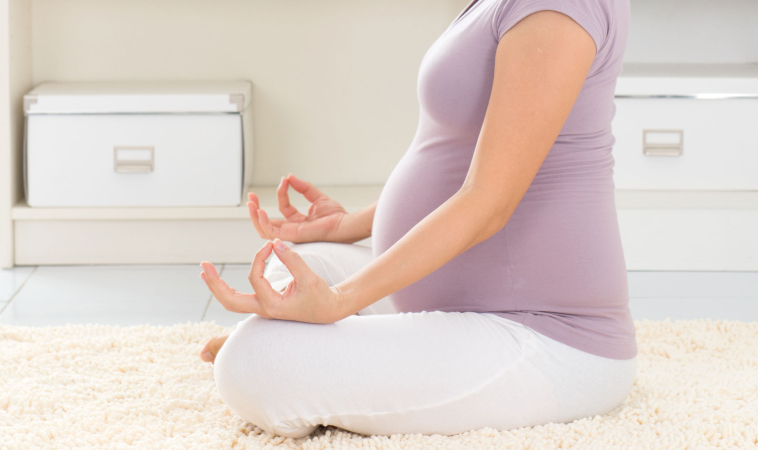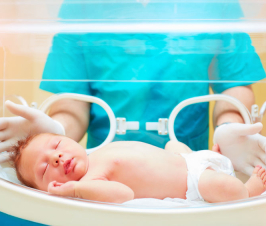By the third trimester of pregnancy the baby’s body almost fully developed, weighing almost 2 1/2 pounds and is 10 inches in length. and is the stage where the baby does most of its “maturing”. During the third trimester, the baby gains its most weight, and function of organs are being optimized – the baby’s hair grows, nails are formed, the bones are hardening, facial features are defined, eyes are opening, they are practicing breathing to strengthen the lungs, and the brain’s two halves start communicating. This is also the time when women start realizing they will be going in to labour soon and is the time where preparation for this moment is most important. In clinical practice, I help women prepare for the physical hardships of labour, using herbs and nutrients to help prepare and strengthen the uterus for efficient labour and delivery. Goals for labour stage include controlled, rhythmic labour contractions, cervical dilation, and helping you deliver close to your due date. Deficiencies in these processes run the risk of going too far past your due date, and putting you in a position where you may have to be medically induced, or having caesarean section delivery. While the safety of the baby is most important and these medical interventions are there when needed, and while these treatments are not 100% fool proof, trying to avoid these scenarios is ideal for most women.
There are a few simple, safe, natural remedies I’ve found to be extremely effective to help women have efficient, quick and on-time deliveries.
Red raspberry leaf tea
This time old-remedy mentioned to you by your mother, midwife and friends is one the safest and effective way to prepare your uterus for delivery. Red raspberry leaf tea contains phytochemical tone and strengthen the uterine muscles to create strong and efficient contraction during labour and reduce risk for post-labour hemorrhage.1 Drinking this in tea form ensures that we only get a small amount of this effect, so don’t over stimulate the uterus into contractions. At 36 weeks, under the supervision of a qualified health professional, women can take this in a stronger form to have a stronger uterine contractile effect. Red raspberry leaf tea can be started at 28 weeks, at 1-3 cups daily.
Acupuncture
Acupuncture has been long used to help prepare the body and uterus from pregnancy can be used for labour preparation and induction. This is one of the most efficient tools I use in my practice for labour and delivery. Clinicians trained in acupuncture use specific points intended to stimulate blood to the uterus, invigorating the nerves that innervate the uterus, and help relax the mind, and pelvic floor. Acupuncture needles also encourage the natural release of prostaglandins to ripen the cervix and oxytocin to create regular contractions and improve pain tolerance. Labour preparation using acupuncture does not to drive the body to into early labour – it merely helps the body and uterus so that when the body spontaneously goes in labour, it is a smooth and efficient process.
For labour preparation, I start this process at 36 weeks of pregnancy, 1x/week until labour starts. For women who have reached full gestation and are anticipating a late delivery, labour induction should be started immediately and should have treatments every 1-2 days until delivery starts. In my experience, it takes about 2-3 treatments for successful induction, which I couple with other natural remedies to encourage labour.
Relaxation and meditation classes/practice learned during the third trimester can help relax the mind and body, allowing you to create a calm approach to labour. Increased stress during labour activates the “fight or flight” response, which shifts the blood from the uterus into the skeletal muscle, reducing the efficiency of labour, and increasing contractile pain.
There are a number of other natural treatments that are recommended by health care professionals, based on the type of pregnancy. Please do not self-prescribe any stronger herbs or nutritional supplements intended to induce labour unless recommended or supervised by a qualified healthcare professional.
 Dr. Tanya Lee, N.D. received her Honours Bachelor of Science degree in Biochemistry and Biomedical Sciences from McMaster University, and was trained as a Naturopathic Doctor at the Canadian College of Naturopathic Medicine. Dr Lee practices full-time between two clinics located in Toronto and Milton Ontario and has been voted Milton’s favourite Naturopath in 2013 and 2014. Her primary care practice focuses on family medicine, treating a wide variety of conditions such as hormonal (endocrine) disorders, fertility, digestive problems, cardiovascular disease, diabetes, insomnia and fatigue. She has a special interest in the treatment of autoimmune diseases, paediatric and perinatal health. Tanya offers her clinical knowledge to a number of publications, including the Natural Path.
Dr. Tanya Lee, N.D. received her Honours Bachelor of Science degree in Biochemistry and Biomedical Sciences from McMaster University, and was trained as a Naturopathic Doctor at the Canadian College of Naturopathic Medicine. Dr Lee practices full-time between two clinics located in Toronto and Milton Ontario and has been voted Milton’s favourite Naturopath in 2013 and 2014. Her primary care practice focuses on family medicine, treating a wide variety of conditions such as hormonal (endocrine) disorders, fertility, digestive problems, cardiovascular disease, diabetes, insomnia and fatigue. She has a special interest in the treatment of autoimmune diseases, paediatric and perinatal health. Tanya offers her clinical knowledge to a number of publications, including the Natural Path.
References:
1. Hoffman D. Medical Herbalism. Rochester, Vermont: He

















